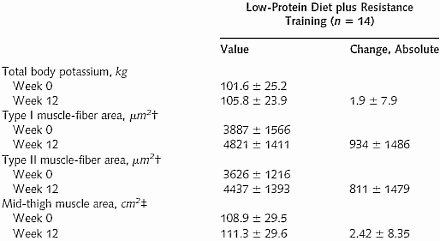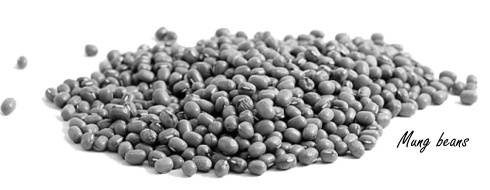|
Definition: "An ergogenic aid is any substance or phenomenon that enhances performance "
|
|
||||||||
01.02.2013 |
|
|
Strength training works even with a low protein intake
If you do weight training, nothing helps you more than making sure you have a high-protein diet. So that's that you might think. But what happens if you combine strength training with a diet that is low in protein? A human study, published in Annals of Internal Medicine in 2001, provides the answer.
Study
So she did an experiment with two dozen kidney patients, whose average age was 65. They were not on the waiting list for a transplant and didn't need dialysis either, but their doctors had advised them to reduce their protein intake to 0.6 g per kg bodyweight per day. If you have a normal diet and don't pay particular attention to the amount of protein you consume, you probably eat about 0.9 g protein per kg per day. Strength athletes usually eat much more than this.
The subjects had not been on a reduced protein diet for long but were already losing weight – probably as a result of muscle breakdown.
In the dozen kidney patients in the control group, who didn't train but continued on a low-protein diet, the weight loss continued throughout the 12 weeks that the experiment lasted. The patients lost more than 3 kg in bodyweight.
The weight of the other dozen kidney patients in the experimental group, who trained three times a week in a gym, stayed stable. The subjects in the experimental group did five exercises on machines: chest and leg press, lat pull-downs, leg extensions and leg curls, with 80 percent of their 1RM.
Results
The muscle strength and size of the muscles [CSA] increased by several tens of percent in the experimental group – despite the low quantity of protein, the kidney problems and the age of the subjects. Click on the tables if you want to see the measurements in the control group.
Conclusion
Source: Archives:
|
|
||||||||||||||||








